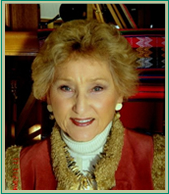
The Prisons of Past Experiences
|
 |
|
| Christa Metzger Guest Contributor |
In the movie Inception, the protagonist, Dom Cobb (Leonardo DiCaprio), is no longer able to construct landscapes for the dreams he shares with others in his group. He has to bring another talented young architecture student (Ellen Page) along for this task. He advises her never to use real memories to construct scenes in the dreams. Using his own past experiences and memories had closed him to new possibilities and creative insights that he needed to solve the problems in the dreams. His structures had already imprisoned his wife in their dream world, unable to return to reality.
As we grow older, we rely on events that we think have made us wiser (“Ah, I remember how this went the last time I tried it”). And we stop searching for new understandings. We get into comfortable ruts and close ourselves off to fresh ways of seeing things. We are fortunate, as Mr. Cobb was, if we have a young dreamer within or around us who can still imagine how things might be.
How do our experiences imprison us? Often it is the labels we give to them that become the building blocks of our confinement. We call a student “handicapped” and stop looking for hidden talents and capabilities. We label a home “broken” or “poor,” and we lower our expectations. We review a child’s past academic records and say, “This one will never make the honor roll.” We judge people, or a condition, far too quickly and decide what we will, or won’t, do. We remember the way someone behaved in the past, and are unable to forgive in order to move on. We label someone, or a group, as “conservative” or “liberal” and stop listening to their views.
Making generalizations, pre-judging, or stereotyping on the basis of an experience or on something we’ve heard or read—all of these prevent us from seeing persons, groups, or situations as they really are. We look at the color of someone’s skin, or what they are wearing, and assess them in certain ways that damage our ability to authentically accept them. We develop a mindset: “She always does this… He is never going to change… All Italians are like this… All Los Angeles drivers are crazy… Stay away from this [neighborhood, city, country]… I’ll never trust them again… All athletes are ____ (fill in the blank)… All ____ (fill in the blank) are stingy.…”
When someone attempts to laud me for being organized and hard-working because I’m of German descent, I feel some resentment—they might just as easily tell me that I’m demanding and judgmental. Others sense our attitudes toward them and lock us out. We do this even to ourselves. We have a bad meal in a restaurant and say “I’ll never go back there.” We limit our options in major ways by allowing past experiences to define us.
“But,” you say, “it’s important to learn from your experiences. That’s what helps us avoid mistakes in the future.” Of course there is truth in this. But I believe the greater danger is to imprison ourselves in a cell walled off by fear that blocks us from exploring new landscapes and inventing visionary structures. We get into familiar habits, into predictable patterns, and fail to be open to more productive, exciting, and creative ways of acting and interacting.
Consider this true story that illustrates my meaning. When I was a superintendent in Arizona, I was in charge of programs and speakers for our County Superintendents Association for a year. My school board president at that time, Alfredo, was an excellent speaker, and I invited him to speak to our group. We did an experiment. He dressed in a plaid shirt and denims during the social time before the program and pretended to be a janitor. Now, Alfredo is a good-looking man of Mexican descent (several generations in the community), with rather brown skin. With his yellow dusting cloth and a mop, he walked around the meeting room to “clean.” I observed that no one paid attention to him; no one greeted him. A few glanced in his direction with annoyance, probably wondering why he had to do these tasks at such a time. Shortly before his talk, he disappeared to change clothes. The janitor became the speaker of the morning, handsomely transformed with his dark suit and tie. You can imagine what happened when I introduced him and the group discovered the ruse. We had fun doing our role-play, and I hope it caused some of my esteemed colleagues to reflect on their own biases.
Rather than closing with a list of how we might free ourselves from the prisons of our past memories and experiences (and there are ways), I thought I would provide an affirmation that you may use when you sense that you are stuck or holding on to some unproductive energy.
AFFIRMATION
I continuously practice self-examination.
I open my mind and become aware of how my experiences shape me.
I clear out old beliefs that no longer serve me and make space for something new.
I open my heart.
I am still and listen with compassion to discover what needs to dissolve or evolve.
![]()
Center for Empowered Leadership ®
Email: info@cfel.org
Phone: 1.609.259.7911
